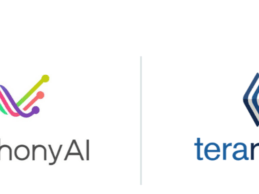For most providers across the country, the need to communicate easily, seamlessly and digitally with patients is growing exponentially. To be most effective and ensure the widest reach, as providers, there are a few best practices you should be following: Educate, identify and treat broadly.
Educate
With the novel coronavirus spreading quickly across the U.S., the need for accurate information is growing just as rapidly. Providers have to communicate to all patients in a given
Read More
RCM: Boosting Practice Revenue Through Patient Financial Clearance
Medical practices have to balance many things. But one of the biggest balancing acts, which often gets overshadowed by patient care, involves keeping finances in the black, by ensuring revenue cycle management (RCM) flows smoothly. Whether practices are solo independent ventures or large, multi-specialty networks, the struggle is real.
When we discuss the most impactful ways to keep a practice’s bottom line in check — and keep the revenue cycle healthy — most people think of back-office
Read More
6 Coronavirus (COVID-19) Considerations for Telehealth Providers
As the novel coronavirus outbreak continues, the federal government and commercial health insurers have taken significant steps to increase Americans’ access to treatment and testing. In the past week, the federal government and private insurers have issued a number of guidance documents expanding coverage and payment requirements in an effort to minimize the spread of the virus.
As with any changes in coverage and reimbursement, healthcare providers offering telehealth services should
Read More
How Health Plans Can Prepare Their Members for Coronavirus (COVID-19)
Any time there are fears of an outbreak, you can be sure of one thing: Purveyors of disinformation will take advantage of these fears by spreading false, often harmful messages.
Coronavirus (COVID-19) is no different, and as what may become the first widespread U.S. public health crisis of the social media era, is likely to be more susceptible to disinformation and conspiracy theories than previous events. For example, some of the more notable falsehoods about COVID-19 include that
Read More
Using Health IT to Preserve Antibiotics and Fight Drug-Resistance
In its latest report on antibiotic resistance, the CDC revealed that infection rates for many threat pathogens are stagnant or in a nominal decline. While this is promising news, there are still a startling 2.8 million cases of drug-resistant infections predicted this year, which will result in an estimated 35,000 deaths. What’s more, the speed at which some patients are developing resistance to last-resort antibiotics – those that are often reserved for special scenarios and designed
Read More
Op-Ed: Health Care Is Too Important To Stay The Same
Virtually every business around the globe is contending with how to improve the consumer experience in an era of digitization. We live in a world where you can calculate the fastest route to your destination, order dinner to be delivered, have groceries loaded into your fridge, and livestream content from around the world – all from the palm of your hand. So why have we not seen the same strides in health care?
In part, because of the inability of patients to access and control their own
Read More
TeraRecon Acquired by SymphonyAI: What is the Impact for Medical Imaging Market?
On the 4th March 2020, TeraRecon announced it had signed an agreement to be acquired by the SymphonyAI Group. Here are the facts of the deal, followed by our take on the potential impact on the medical imaging market:
- The terms of the deal were not disclosed and TeraRecon will continue to operate business as usual. However, it will benefit from greater financial backing and the synergistic technologies from other companies in the Group’s portfolio.
- TeraRecon is an Advanced
Read More
The Hard Truth About Boosting Patient Acquisition
Technology giants and other non-traditional players are moving into the healthcare market, giving consumers a host of new options for how and where they obtain services. Everyone from Apple and Amazon to G.E. and Berkshire Hathaway are disrupting the market by introducing new delivery models that emphasize simplicity, transparency and positive digital experiences.
Traditional players will need to recalibrate how they build market share due to this new consumerism threat. In fact, a
Read More
The Many Faces of AI in Clinical Trials
AI is being applied in several aspects for the clinical trial process today. From analyzing real-world data and scientific information to providing improved patient stratification and predictive outcomes, and assisting with different aspects of clinical trial operations. Here are some of the technologies using AI and machine learning in the clinical trial space today, outlining how they fit within the clinical trial ecosystem and discuss the impact on future clinical trial designs.
The
Read More
Can EHRs Stand Up Marketplaces for Innovation?
The Office of the National Coordinator for Health IT (ONC) continues to advocate for improved data exchange, with the interoperability and information blocking rules being the latest federal push.
One of the ONC’s goals with its latest guidance is to establish an ecosystem of innovation, with electronic health records (EHRs) serving as the foundation -- i.e., the platform enabling application development and user access.
But when it comes developing an EHR-based marketplace for
Read More











